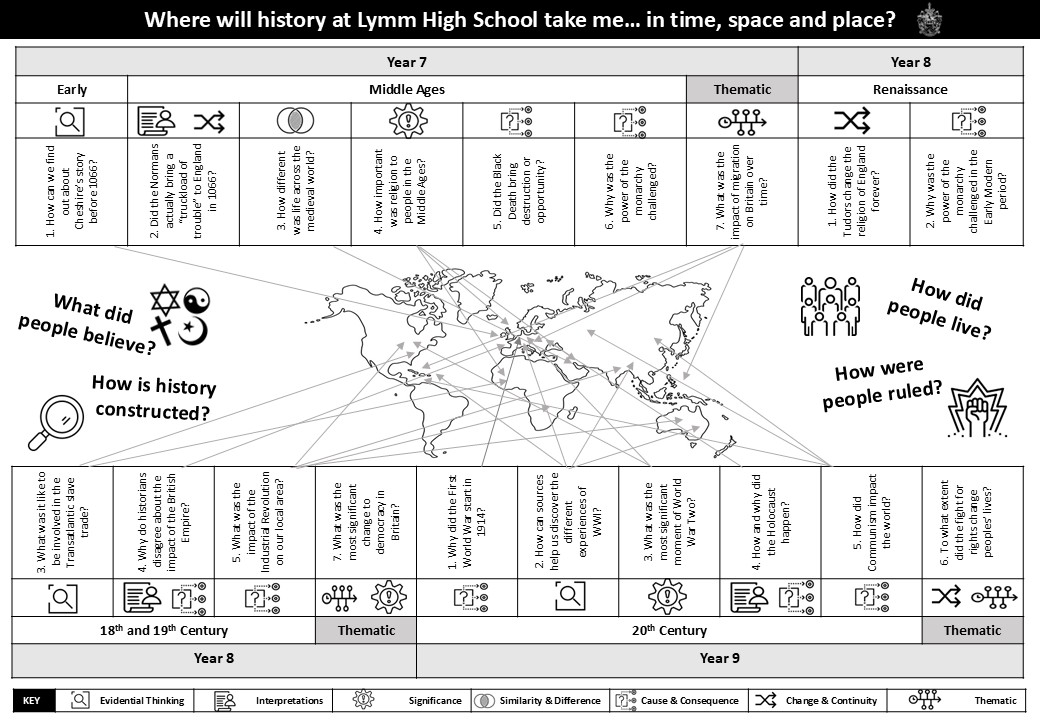Students are provided with a coherent, balanced chronological narrative that gives them a knowledge and understanding of important periods and events in Local, British and World History.
Students will study diverse content that includes people from around the world, of different genders, faiths, sexualities, disabilities, classes and cultures in order to reflect the diversity of the school and country’s population, and to develop students’ understanding and appreciation of diversity.
Our new curriculum map (below) shows the new diverse curriculum we have planned (this opens in a larger window when clicked on).
The curriculum will be carefully planned to ensure students progress in their knowledge and understanding of second order concepts such as continuity and change, cause and consequence, similarity, difference and significance, and use them to make connections, draw contrasts, analyse trends, frame historically-valid questions and create their own structured accounts, including written narratives and analyses. Progression will also be considered in students’ knowledge and understanding of key first order concepts that are vital for understanding key historical events.
Our curriculum will also help students to understand the methods of historical enquiry, including how evidence is used rigorously to make historical claims, and discern how and why contrasting arguments and interpretations of the past have been constructed.
Students will be asked to consider relevant scholarship in key topics and engage with historical debate, as well as being taught to write like historians.
Homework: In History, students are set a variety of tasks for homework each fortnight. These will include learning key vocabulary and definitions, revising substantive knowledge, and completing their Enquiry Outcome tasks.
Other Useful Information
